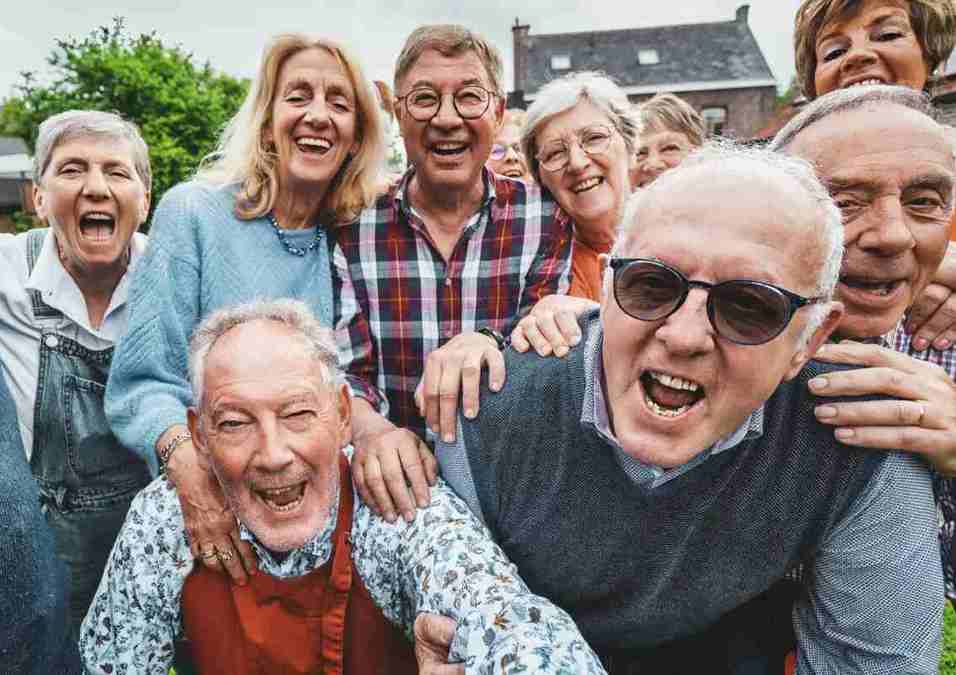Social Fitness and Health Impact

SIGN UP FOR YOUR FREE DAY PASS TODAY!
If you find it challenging to connect with others in the post-pandemic world, incorporating “social fitness” into your routine might be the key to rebuilding those skills.
According to Dr. Kathryn Smerling, a psychotherapist and author of Learning to Play Again: Rediscovering Our Early Selves to Become Better Adults, just as physical fitness requires consistent effort, so does maintaining your social skills.
Smerling calls this “social fitness," a practice geared toward improving mental health and nurturing meaningful relationships. She shared her insights with The Post, offering advice on how to strengthen your current connections and develop new ones.
The Benefits of Social Fitness
The next time you experience FOMO (fear of missing out), remember this: spending time with friends and loved ones can significantly improve your overall well-being.
Smerling explains that positive relationships form the foundation for a longer and happier life, especially as we age. Strong connections often lead to reduced anxiety, fewer instances of depression, and even a lower risk of chronic illnesses.
Although the biological mechanisms behind these benefits are still being studied, researchers agree that friendships can influence how our bodies react to stress.
This is crucial since stress can impact everything from coronary artery health and gut function to insulin regulation and immune system performance.
On a mental health level, meaningful relationships provide critical social support, boost self-esteem, and promote a sense of belonging.
Better yet, these interactions stimulate the release of “feel-good hormones” like oxytocin, dopamine, and serotonin. These hormones foster feelings of trust, calmness, and contentment.
“When we fail to cultivate positive relationships or neglect social fitness, loneliness and isolation can take over,” Smerling warns.
Unfortunately, these emotions can have serious mental and physical consequences, particularly as we grow older.
Lack of social connections has been linked to mental health issues, difficulty sleeping, weakened immunity, cardiovascular complications, cognitive decline, and even heightened mortality rates.
For example, a study revealed that middle-aged individuals who lived alone and rarely received visitors faced a 39% higher risk of early death than those who had regular family or friend visits.
Importantly, casual interactions at events or with acquaintances didn’t provide the same health benefits as deep, meaningful relationships.
Today’s Loneliness Epidemic
The adverse effects of loneliness have taken center stage as the U.S. contends with a growing “connection crisis,” exacerbated by the pandemic.
Loneliness became such a significant issue that, in 2023, former U.S. Surgeon General Vivek Murthy officially labeled it a public health epidemic.
According to a survey by the American Psychiatric Association, 30% of adults admitted to feeling lonely at least once weekly in early 2024, and 10% felt this way daily. Worryingly, younger generations were the most likely to report these feelings.
Tips to Enhance Your Social Fitness
Smerling’s primary advice for improving social fitness? Make live, in-person interactions a priority.
Whether it’s a lunch date with a friend, a walk with a family member, or reaching out to someone you haven’t talked to in a while, engaging in face-to-face interactions is crucial.
“It doesn’t have to be complicated,” Smerling explains. "Like a muscle, the more you exercise your social fitness, the easier it becomes.”
Smerling highlights in her book that as children, we naturally build relationships outside of our immediate circles by being spontaneous and curious. However, as adults, we often lose touch with these qualities, making it harder to form connections.
“To establish more meaningful relationships, adults must learn to reconnect with the curiosity and spontaneity that come naturally to children,” Smerling noted.
“This openness makes connections feel more effortless and keeps you feeling youthful.”
Expanding Your Social Circle
If you want to meet new people, Smerling suggests taking part in activities that facilitate interaction, such as joining a book club, participating in a pottery class, or running with a group.
Start small by setting achievable goals like introducing yourself to two new people or asking someone for their contact information to schedule a future meet-up. These simple steps can help grow your social circle over time.
By focusing on your social fitness, you’re investing in healthier relationships, long-term mental and physical health, and a more fulfilling life. It's time to put these ideas into action and “work out” those social skills!
Source: nypost
The opinions shared in the GymNation blog articles are solely those of the respective authors and may not represent the perspectives of GymNation or any member of the GymNation team.































































